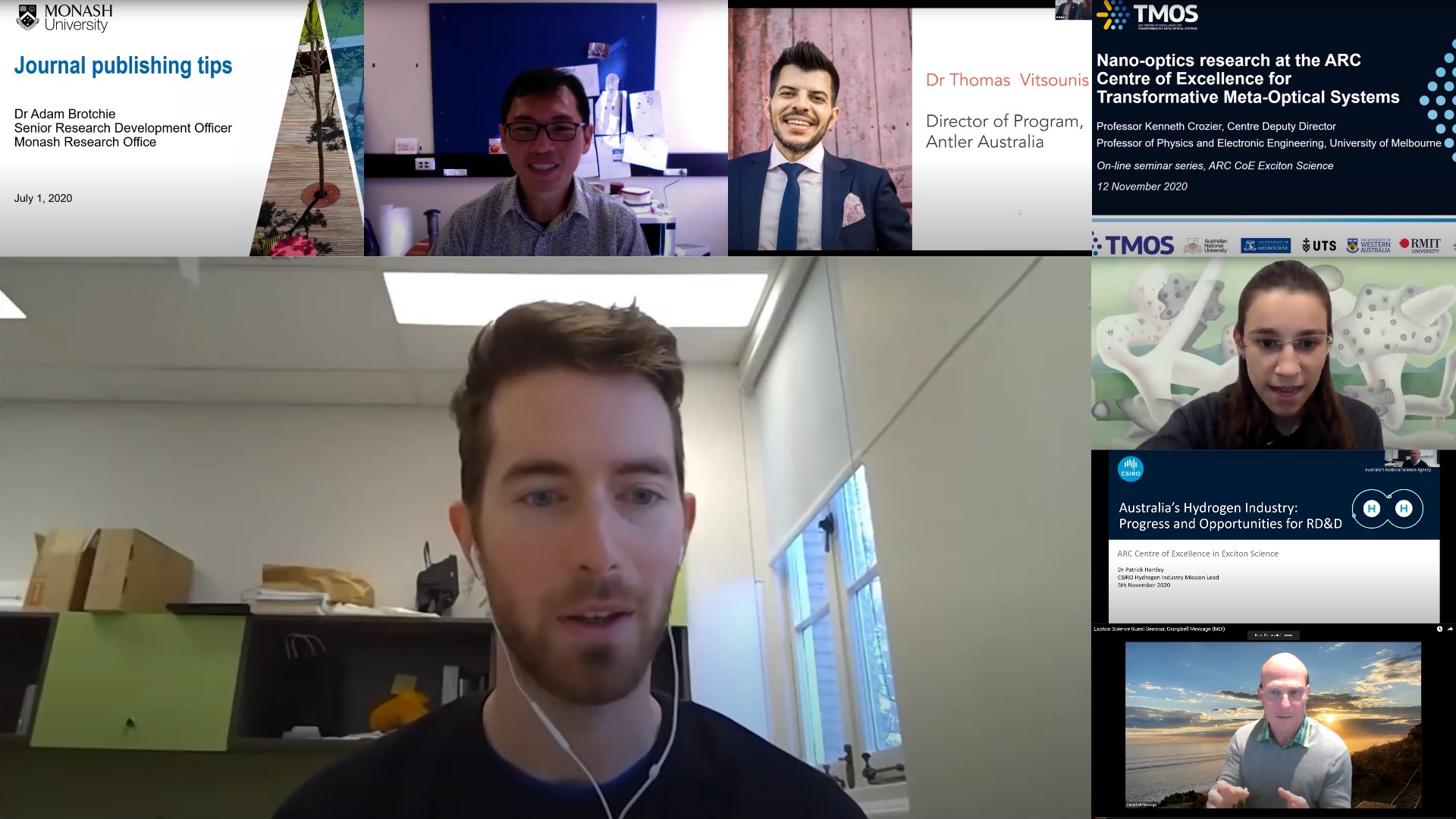

With members and friends spread across five Australian universities in two cities, and in many other locations around the world, from its inception Exciton Science has been adept at establishing and maintaining mechanisms for communicating and collaborating effectively over long distances and in different time zones.
In 2019 the Centre held monthly seminars rotating through each of its five node universities, and which were attended by as many members as possible. These events featured research presentations, operations announcements, committee meetings and training sessions. At the end of the calendar year, the annual workshop brought together all members of the Centre, domestically and internationally, to amplify the impact and value of this format.
In March 2020, after only two monthly seminars at UNSW Sydney and Monash University, and amid plans to host the annual workshop in the Blue Mountains to support tourism and hospitality businesses recovering from severe bushfires, it quickly became apparent the Centre would be unable to maintain its usual procedures.
In lieu of these regular events, and within the first weeks of enforced remote working, the Centre established a weekly online seminar series, taking place on Thursdays at 1pm. These afforded the Centre’s leadership, ED&I Committee and operations staff, including its Outreach, Media and Communications functions, to provide updates and engage in important dialogue with members and researchers.
The primary focus of each seminar was a research or specialist presentation from Centre members, collaborators and guests.
Centre Director Professor Paul Mulvaney of the University of Melbourne opened the series on March 26 in the first of what proved to be 39 highly successful online meeting, learning and discussion sessions.
Highlights of the series included an update from Dr Nick Kirkwood on the contribution of Centre members to an Australian Government project for developing materials to be used in rapid COVID-19 testing kits.
Towards the end of the series, Dr Patrick Hartley of CSIRO provided a fascinating guide to progress and opportunities in Australian’s hydrogen industry, while Professor Ken Crozier of the University of Melbourne introduced members to the new ARC Centre of Excellence for Transformative Meta-Optical Systems.
Special guest presentations included a detailed guide to successfully submitting research manuscripts to high-impact publications, delivered by Adam Brotchie, a former editor of the Wiley and Nature journals.
Centre members enjoyed a presentation delivered by representatives of Antler, an early-stage venture capital firm, about the potential for entrepreneurial researchers to commercialise their specialist knowledge.
Exciton Science was also grateful for the opportunity to hear from Campbell Message, Program Manager for the Melbourne Disability Institute, about how the Centre as an entity and members as individuals can better consider the needs of accessibility and inclusivity within our daily behaviours and workplace practices.
The majority of the sessions were recorded, edited and made available to watch via our Members Portal, with some exceptions made for reasons of sensitivity and confidentiality of material. To date, these recordings have been viewed nearly 250 times, and will remain available as an ongoing resource for students and researchers to access during the Centre’s lifetime.
While it is hoped that in 2021 public health conditions will allow members to resume more regular, in-person meetings, the success of the online seminar series in establishing and maintaining personal and professional connections during a difficult year was invaluable.
